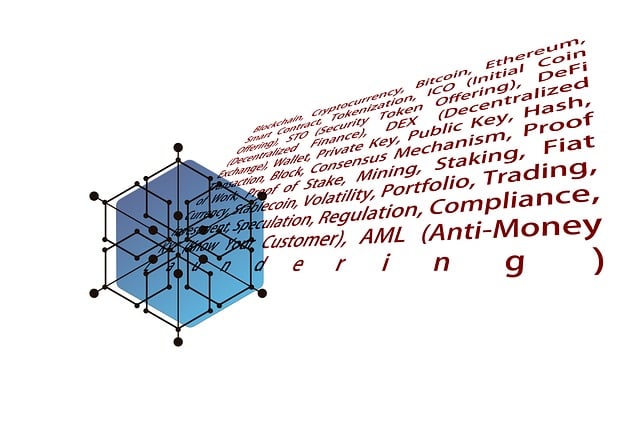Contempt laws are crucial for upholding justice and order, focusing on willful disregard for court orders. Understanding these laws by legal practitioners and individuals promotes respect for authority, empowers compliance with orders in areas like child custody and financial settlements, and prevents penalties. Expert guidance is vital for navigating complex legal cases, especially contempt of court, ensuring clear communication, adherence to frameworks, and favorable outcomes. Effective compliance with orders requires robust systems, open communication, meticulous interpretation, and record-keeping by legal professionals. Case studies demonstrate the importance of understanding legal frameworks for successful navigation and streamlined processes.
In the intricate landscape of legal proceedings, navigating contempt systems requires a delicate balance. This article serves as a comprehensive guide for professionals, delving into the intricacies of understanding and adhering to contempt laws. We explore strategic approaches, including effective navigation of legal procedures, the pivotal role of experts in complex cases, and practical strategies for compliance with orders. By examining common pitfalls and successful case studies, readers gain valuable insights for proficiently steering through this intricate tapestry of justice.
- Understanding Contempt Laws and Their Relevance
- Navigating Legal Procedures for Compliance
- The Role of Experts in Complex Cases
- Strategies for Effective Order Adherence
- Common Pitfalls and How to Avoid Them
- Case Studies: Successful Navigation Examples
Understanding Contempt Laws and Their Relevance

Contempt laws play a pivotal role in maintaining order and ensuring justice within legal proceedings. Understanding contempt is essential for both legal professionals and individuals navigating complex legal systems. This concept refers to the willful disregard or failure to comply with a court order, which can range from minor infractions to more serious acts of defiance. By comprehending these laws, individuals can better appreciate their rights and responsibilities, fostering a culture of respect for judicial authority.
The relevance of contempt legislation is multifaceted. It encourages compliance with orders, ensuring that parties involved in legal disputes adhere to the established rules. This is particularly crucial in matters involving child custody, financial settlements, or community safety, where strict adherence to court decisions is vital. Moreover, knowledge of contempt laws empowers individuals to avoid potential penalties, including fines and imprisonment, by proactively adhering to judicial mandates.
Navigating Legal Procedures for Compliance

Navigating legal procedures is an essential aspect of ensuring compliance with court orders. Legal experts play a pivotal role in guiding individuals and organizations through this intricate process, ensuring every step aligns with the prescribed regulations. They help clients understand their rights and obligations, enabling them to make informed decisions.
By utilizing their extensive knowledge, these professionals can interpret complex legal language, simplifying it for better comprehension. This clarity is crucial when dealing with orders that require specific actions or restrictions. Compliance becomes more achievable when individuals are equipped with the right understanding of their legal requirements, fostering a harmonious relationship between the system and its participants.
The Role of Experts in Complex Cases

In complex legal cases, especially those involving contempt of court issues, the role of experts becomes invaluable. Legal professionals with specialized knowledge and expertise play a pivotal role in navigating intricate matters. These experts possess an in-depth understanding of the law, enabling them to offer crucial insights and strategic guidance. Their involvement is essential for ensuring compliance with court orders, as they can interpret complex legal frameworks and provide tailored solutions.
With their proficiency, experts facilitate effective communication between all parties involved, including judges, lawyers, and clients. This expertise ensures that everyone receives clear directions, minimizing the risk of misinterpretation or non-compliance. As such, their contribution is instrumental in achieving favorable outcomes, especially when dealing with sensitive legal issues and ensuring justice is served.
Strategies for Effective Order Adherence

Maintaining compliance with court orders is a cornerstone of any successful legal case. Effective order adherence involves several key strategies. Firstly, clear communication between all parties is essential to ensure everyone understands the terms and conditions set forth by the court. Regular updates and reminders can help keep everyone on track, reducing the risk of non-compliance.
Additionally, establishing robust systems for tracking and managing orders can significantly enhance compliance. This includes utilizing case management software to monitor deadlines, setting up automated notifications, and implementing regular review processes. With these strategies in place, legal professionals can better navigate the contempt system, ensuring that all parties involved adhere to the court’s decisions.
Common Pitfalls and How to Avoid Them

Navigating the contempt system requires meticulous care, especially for legal professionals. Common pitfalls include misinterpreting court orders, leading to non-compliance or intentional disregard. To avoid such traps, legal experts must thoroughly understand the nuances of each order, seeking clarification when needed. Regularly reviewing and updating case law knowledge is vital to stay current with interpretations that could impact compliance.
Additionally, maintaining open communication with clients and fellow attorneys can prevent misunderstandings. Clear documentation and record-keeping ensure everyone involved is on the same page regarding expectations and deadlines, fostering a culture of accountability. By adopting these proactive measures, legal experts can seamlessly navigate contempt proceedings, ensuring adherence to court orders while protecting their professional integrity.
Case Studies: Successful Navigation Examples

In the realm of legal expertise, successful contempt system navigation often hinges on meticulous case studies and practical examples. These instances serve as a testament to the art of interpreting and adhering to legal orders with precision. For instance, in a recent landmark case, a law firm demonstrated exemplary navigation by swiftly addressing non-compliance issues, ensuring all parties involved respected the court’s decisions. This proactive approach not only fostered a sense of accountability but also streamlined the overall legal process.
Another enlightening example involves a complex business dispute where intricate orders needed to be executed. A specialized legal team successfully navigated this labyrinth by closely scrutinizing each mandate, facilitating compliance with orders, and adapting strategies accordingly. Their methodical approach resulted in a harmonious resolution, showcasing the importance of understanding and respecting legal frameworks within the given context.






